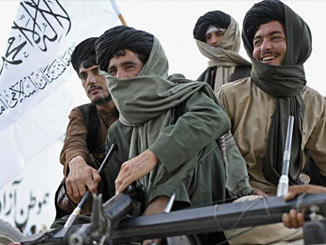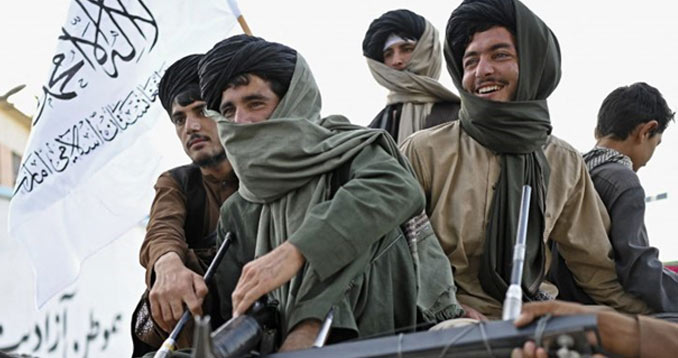

Hasht-E Subh Currently, Qatar is one of the key players in Afghan politics. Qatar’s relationship with the Taliban dates back to the early years of the group’s emergence. However, the opening of the Taliban’s political office in Qatar and this country’s unwavering propaganda support for the Taliban, followed by the signing of the Doha agreement between the United States and the Taliban, have provided Qatar with greater maneuvering opportunities, turning it into a significant player in Afghanistan’s developments. On the other hand, Türkiye, which has close relations with Qatar, has also sought to manage Taliban leaders in a way that does not jeopardize Türkiye’s economic and strategic interests in Afghanistan after the establishment of the Taliban regime.
Qatar’s Foreign Minister’s reception of Mullah Abdul Ghani Brother and the delegation of some Afghan diplomatic representatives to Türkiye to this group signify the warm relationship between Türkiye and the Taliban. Türkiye expects the Taliban to give a greater role to the Uzbeks in leading Afghanistan and to allow desired personalities in Ankara to engage in political activities inside Afghanistan, but so far, they have not succeeded in this regard. Despite international pressures, the Taliban have not relinquished power monopolization thus far.
The recent focus revolves around the concerted efforts of Qatari and Turkish-aligned media outlets to present a rational and justifiable image of the Taliban. They endeavor to portray significant achievements for the group and depict Afghanistan as flourishing. Furthermore, they dismiss reports of widespread human rights violations against women and minorities in Afghanistan as part of Western propaganda against the Taliban. These media outlets excessively promote the Taliban’s agenda to the extent that their actions resemble propaganda, prompting criticism and protest from their audiences.
Yasin Oktay, a close associate of Recep Tayyip Erdogan, the President of Türkiye, recently traveled to Afghanistan and published his observations and interpretations in the publication “Yeni Şafak,” which is affiliated with Qatar. Oktay emphasized in his recent article that those viewing Afghanistan from the outside hold misconceptions about the Taliban, perceiving them as uneducated armed individuals lacking leadership skills and knowledge of modern governance. Contrary to Western portrayals, he argued that the term “Taliban” in Pashto refers to individuals who seek knowledge and education.
Oktay further asserts that a general amnesty issued by the Taliban leadership upon seizing power has prevented bloody conflicts and brought security across the country. He believes Afghanistan is a tribal society where it’s challenging to deter tribal revenge conflicts, but Mullah Hibatullah Akhundzada managed to implement this through inspiration from the Prophet’s methods.
However, despite Oktay’s claims, reports of Taliban killings, massacres, and widespread violations of men’s and women’s rights have surfaced repeatedly since the Taliban’s return. Fortunately, some media outlets and human rights organizations have documented some of these atrocities, leaving no room for denial. The United Nations, a reputable institution, has repeatedly expressed serious concerns about extrajudicial killings by Taliban militants.
One of Oktay’s peculiar claims is that the Taliban are capable of fighting against tribal traditions contradicting Sharia law, including enacting laws to safeguard women’s rights. He argues that contrary to Western media portrayals, the issue of girls’ education is not as depicted, and information suggests that the Taliban are preparing to reopen girls’ schools.
Unfortunately, Oktay, who operates in a secular country and enjoys the privileges offered by a secular system, behaves similarly to official Taliban spokespersons, ignoring all the realities within Taliban-controlled territories. The Taliban’s track record in suppressing women and engaging in discriminatory behavior towards them is so disgraceful that few are willing to defend it. It remains unclear why Yasin Oktay turns a blind eye to facts and makes strange and baseless claims.
The Taliban initially portrayed the closure of schools and universities to girls as temporary, but it gradually became evident that there was no intention to allow girls’ education. With each passing day, the restrictions on women’s lives become more severe, reaching medieval levels, and leaving no room for justification or interpretation.
Another strange claim by Yasin Oktay is that with the provision of comprehensive security in Afghanistan, people are returning to the country, suggesting a reverse migration trend. If Oktay were to open his eyes, he would witness a significant increase in Afghan migrants, even in Istanbul, where he likely resides. Young people are fleeing the country legally or illegally, making Afghanistan top the global migration chart. The difficulty of life in Afghanistan is not a matter of propaganda but a reality felt by the country’s residents.
Yasin Oktay has been attempting to highlight the economic achievements of the Taliban, such as mining, oil, and gas extraction, and the construction of the Kosh-Tepa canal. It should be noted that some of these projects were inaugurated during the Republic, but due to the insecurity for which the Taliban were responsible, their implementation was not pursued diligently. Besides, if these projects genuinely contribute to improving Afghanistan’s economic situation, why is the majority of the Afghan population still dependent on foreign aid? If this aid is cut off, it could likely lead to a humanitarian catastrophe.
Why don’t these projects bring about any changes in the people’s livelihoods? If the Taliban indeed have significant economic achievements, why do the United States and its allies send at least forty million dollars each week, if this aid does not materialize, the Afghan currency rapidly depreciates, resulting in a severe reduction in people’s purchasing power. If the Taliban have economic achievements, why do their officials seek foreign aid every day to advance development projects?
Simultaneously with the publication of Yasin Oktay’s writings favoring the Taliban in Qatari and Turkish media, a person named Fazlullahadi Wazin, a leader of the Jamiat-e Islah party and a major shareholder in Qatar-backed economic projects, now living in Türkiye, wrote an article on Al Jazeera’s website mostly defending the Taliban’s performance and highlighting their achievements. The irony is that this individual and others like him fled the country out of fear of Taliban retribution, yet due to being caught in the web of intelligence games, they are compelled to act according to the orders of the “eternal leader.”
The critical question is, if the Taliban are benevolent to the people who provide services to the residents of Afghanistan and have stabilized the situation, why did you and people like you flee the country when the Taliban returned?
The main point of contention between these individuals and the Taliban is the issue of girls’ education, and if this problem is resolved, no other issue remains. These individuals have become so immersed in worldly desires that they have condensed their problem with the Taliban to girls’ education. This is while the educational curriculum is one of the essential issues that should be addressed. Education of boys and girls in an ideological and Taliban-dominated environment likely exposes many of them to ideological brainwashing and creates servants of the Taliban’s medieval ideology.
The Jamiat-e Islah party and its fugitive leaders, who paved the way for the return of the Taliban for years, do not protest against the suppression of critics, media personnel, and dissenters because they deem it correct. If they ever come to power themselves, they would likely choose the same approach. There is no difference between the Taliban and the Jamiat-e Islah in their suppression.
They have no problem with the killing of civilians or former soldiers by the Taliban, nor do they see any issue with the Taliban’s torture and sexual abuse against women. Perhaps they believe that such actions are necessary to eliminate “female sedition” and counter-cultural invasion. The Jamiat-e Islah does not oppose the Taliban’s cultural conservatism and hostility towards the Persian language. Years ago, this party clarified its position in this regard in a statement, accusing defenders of the Persian language of sowing discord. This is not surprising, as the individuals at the helm of this institution, besides sharing ideological affinity with the Taliban, are also renowned for their ethnic nationalism.
In conclusion, it must be said that perhaps the efforts of Qatari and Turkish media may deceive and persuade some distant observers for a while, making them believe that the situation in Afghanistan is normal. However, the stark and disturbing realities are so compelling that these efforts will ultimately be fruitless in the long run. Narratives aimed at rehabilitating the image of the Taliban, while the Taliban themselves make no effort to tarnish their reputation, are futile. The situation has become so chaotic that recently, even a Saudi Arabian beauty queen, Romy Al-Qahthani, is teaching religion to the Taliban and relaying their words and narratives. The Taliban’s actions have left no dignity for this group that could be preserved by creating false narratives. Opponents of the Taliban should not be concerned about this matter.
